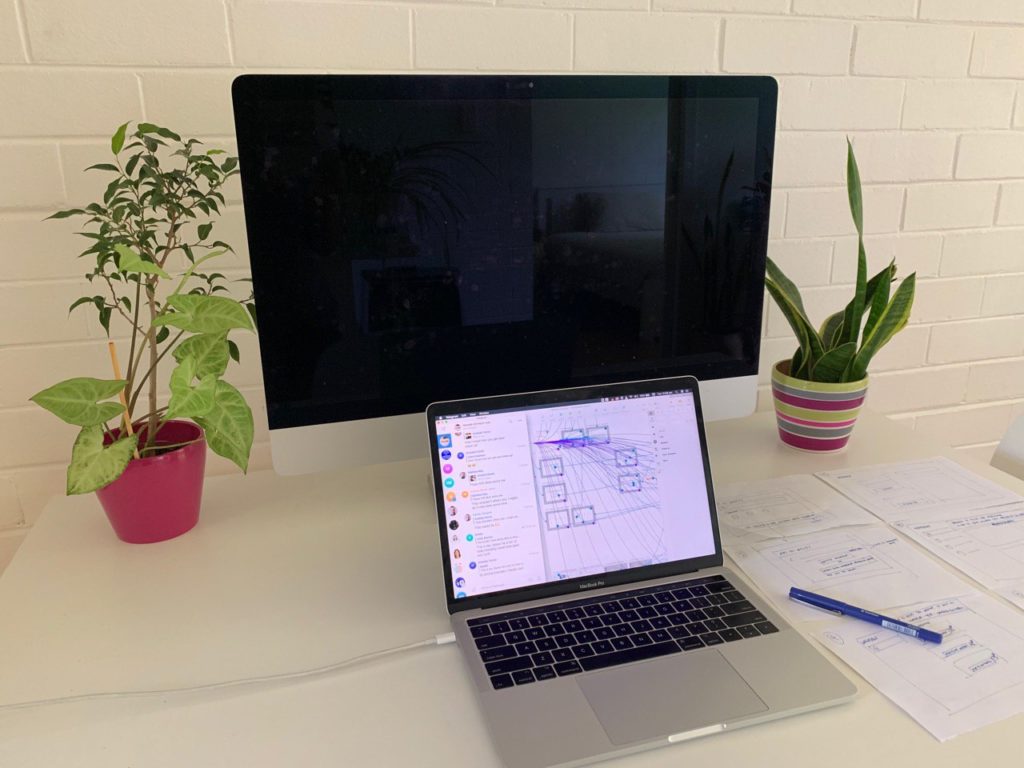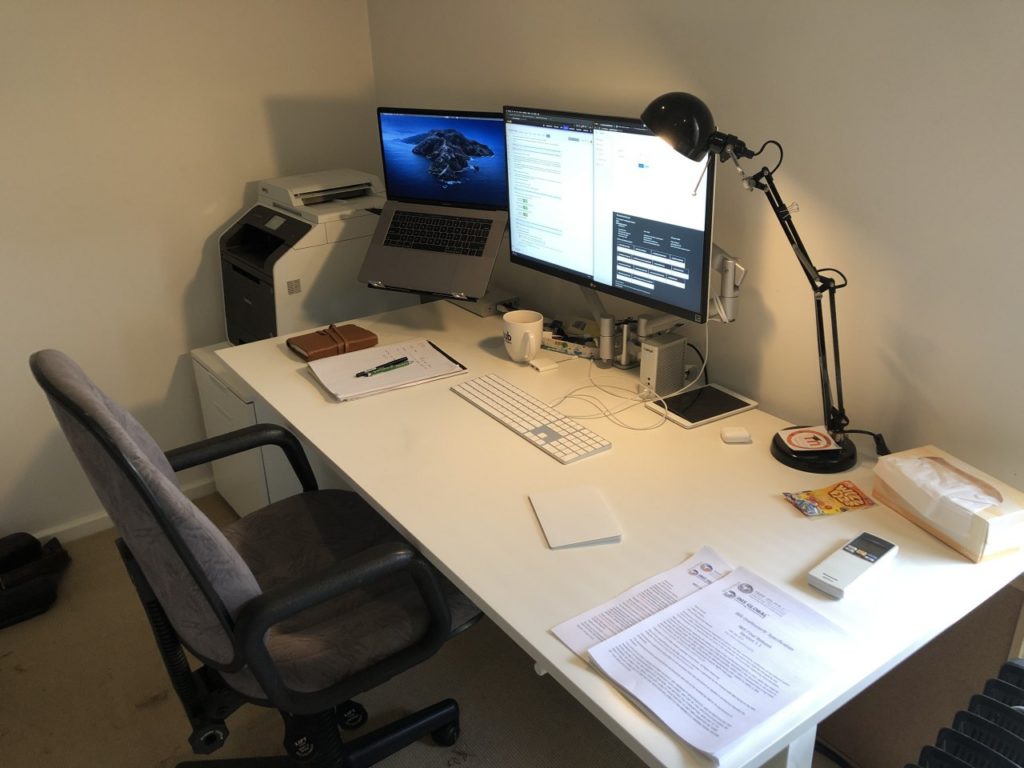Here at Moodle, we like to introduce fresh ideas into the way we work as an organisation. Earlier this year, while moving offices, the Perth team cleared out our desks and headed home to work remotely initially for just a month. Then Covid-19 happened, and before we knew it, we were all working remotely for an unknown period of time. Some love it, some lik it and some can’t wait to get back to the office.
Let’s start by putting things into perspective, at Moodle HQ we’re not shy about remote working. In fact, over 35% of our team members worldwide were already working from home permanently so we’re super proud of our flexibility. Before Covid-19 hit, our team were utilising our flexible working arrangements each week, whether its ad-hoc days, set days or even working remotely from another country for a period of time. Luckily, we had all the systems, processes and our communication principles in place, to prepare us for the long haul.
Here are the top 5 things we’ve learnt working remotely while seeing out the global pandemic:
- A dedicated work space at home goes a long way for productivity

We found that having a dedicated work space at home, away from distractions, helps shift the mindset of the working routine. I’m sure you have read this top tip before, but most of our team members found that it really helped with the mental shift in the morning. Moving from the morning routine into a dedicated workspace and having it set up with multiple screens to reflect their office workstations (and even adding “Moodle bits and pieces on their desks”) ensured the transition from home time to work time. - Health and wellbeing went up
I’d say all of us felt like we completed the same amount of busy work at home as we do in the office (dare I say more), but we felt an improvement in work-life balance. Previously, we already had a great work-life blend due to our great flexibility, but being at home and not having to commute, or pack lunch and snacks contributed to a sense of calm in the morning. There wasn’t the mad rush to get out the door, or bolt home to get dinner on in time for the family. Instead, the time saved in the morning was used ad hoc throughout the day to do the grocery shop, put the slower cooker on at lunch or a quick afternoon jog; easing the pressure of home life. - Communication needs more attention and needs to be deliberate
A lot of us missed the quick side chat at our desk with our team mate, the random conversation while making a coffee in the kitchen and the walking to a team mates desk to hash out a small question.. It’s part of the glue that contributes to organisational culture.We found that chatting online, although our main form of communication across the organisation, really needs to be intentional. Reaching out to say hi, good morning and a general check in is so important when you are working from home.And what’s our takeaway here, we need to make more of an effort with our permanent remote workers. They never have the opportunity to easily lean over a desk and speak to their colleagues and instead rely on videoconference and instant messaging.
We need to get ok with a quick impromptu video conference. It is a lot quicker than trading emails or instant messages; and that face to face interaction does wonders in terms of building relationships with team mates. - Our work day hours ended up being longer but we didn’t mind

Because Moodle is a globally dispersed and diverse organisation, we’re used to having meetings out of “office” hours; but something about working at home made it ok and less of a burden. The saved time of the commute and the ability to make dinner (and other household chores) during the day made the concept of a night meeting more palatable. - Working from home isn’t for everyone
Most of the feedback from the team suggests that working from home is great, but the face to face interaction, the office banter and Friday drinks was really missed. Whilst it allows for flexibility for a couple of days of the week, we still prefer a balance of having office time with our colleagues.
So what have we learnt overall?
It’s been an interesting experience and we’ve a new appreciation for our remote workers who do it permanently.
We’ll continue to embed our Communication Principles and our OKR (Objective and Key Result) process which are both paramount in the success of remote working.



